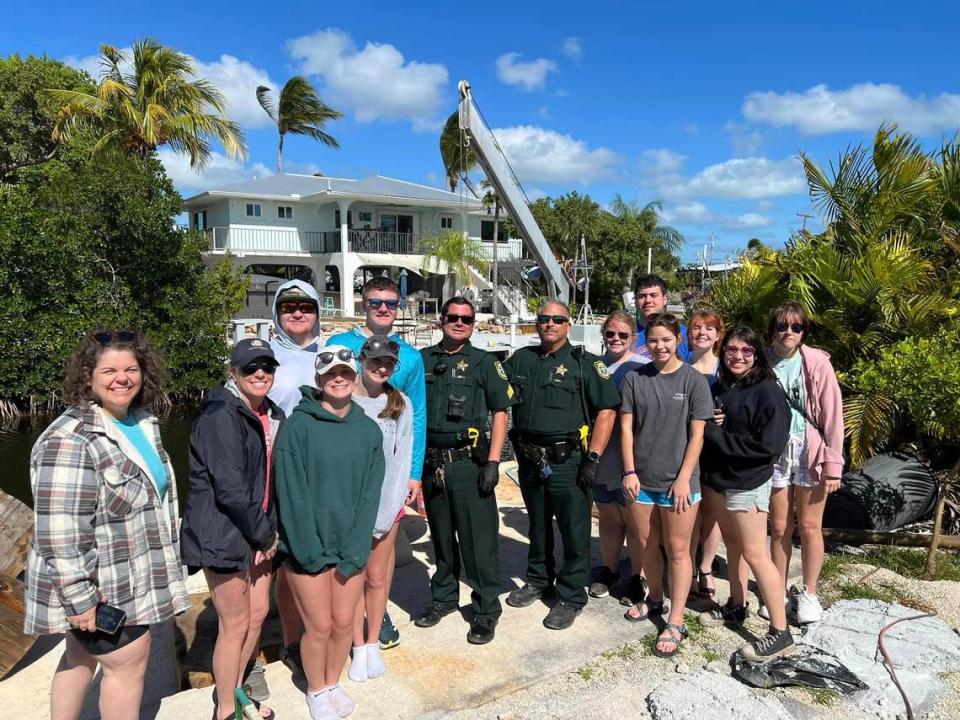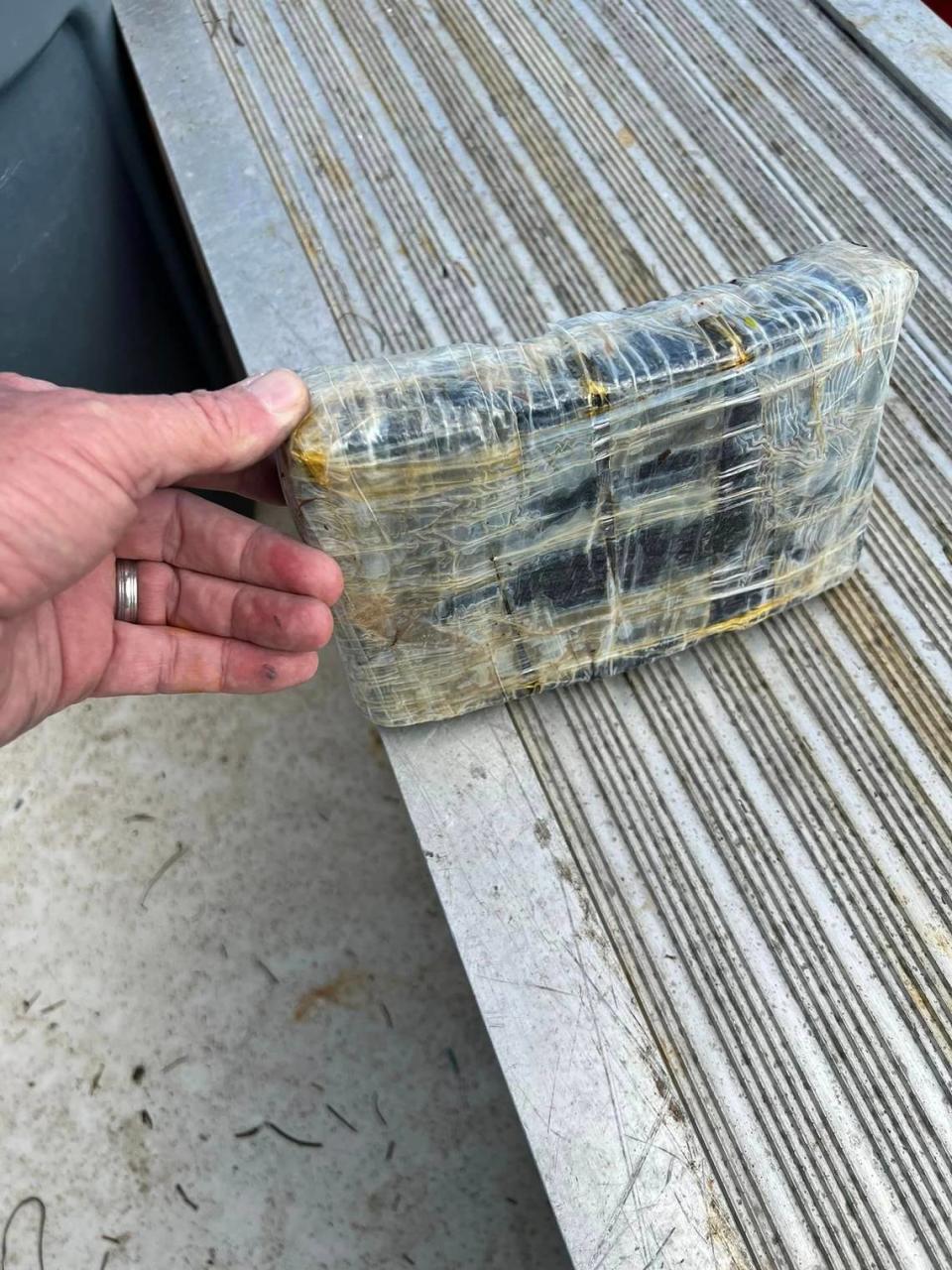Conservation volunteers traveled to the Keys expecting to clean up trash. They found cocaine
In the months after Hurricane Irma devastated the Florida Keys, the Conch Republic Marine Army launched as a nonprofit that aimed to help clean up the massive amount of debris that ended up washing and blowing away from people’s homes, yards and businesses — and into the sea during the powerful September 2017 storm.
Everything from boats, to cars, to refrigerators, to hot tubs found its way into the ocean, Florida Bay and Gulf of Mexico in Irma’s aftermath, and much of that remains in the mangroves to this day.
Compounded by litter unintentionally and intentionally discarded, the Conch Republic Marine Army and its volunteers have removed hundreds of tons of trash and other debris from the mangroves and nearshore waters since the non-profit began seven years ago.
On Monday, 10 high school students volunteering with them discovered something while scouring the shores of Big Pine Key that will likely make their trip from Missouri to the Keys something they’ll likely never forget.
Along with 346 pounds of trash, they also fished out a brick of cocaine coming in at just over a kilogram.
“It was found in the high tide line, and we called the proper authorities,” Brian Vest, founder and president of the Conch Republic Marine Army said.

Vest took the contraband back to the dock, where he was met with Monroe County Sheriff’s Office deputies, who handed it over to the U.S. Border Patrol.
Adam Hoffner, assistant chief patrol agent for the U.S. Border Patrol’s Miami sector, said the total weight of the brick was 2.5 pounds, with an estimated street value of $35,000.
While the cocaine package was an unexpected find for the young conservationists, it’s not unusual for smugglers to lose parts of their loads while shipping drugs to the U.S., and the Keys — or the waters off the island chain — are where those narcotics often end up.
Over the summer and into the fall, there were several large loads of cocaine, marijuana, and even hashish, found washed up on land in the Keys, or just offshore.
In late July, for instance, Tampa Mayor Jane Castor was in the Keys fishing with her family when they came across what wound up to be 70 pounds of cocaine, which the Border Patrol estimated to be worth about $1.1 million.
For Vest, he was amused at what the kids found, and glad those drugs will never hit the streets. In the meantime, his mission to rid South Florida of another scourge — trash and debris that’s endangering the Keys ecosystem — continues.

He and his crews take volunteers out several times a week. They embark by boat, then get out in the shallows and scatter the shoreline for garbage. Since the formation of the Conch Republic Marine Army, Vest estimates more than 4,000 volunteers have come to the Keys to do their part.
“There’s a way for everyone to help save the Florida Keys in different ways,” he said.
For more information, go to www.conchrepublicmarinearmy.org.

